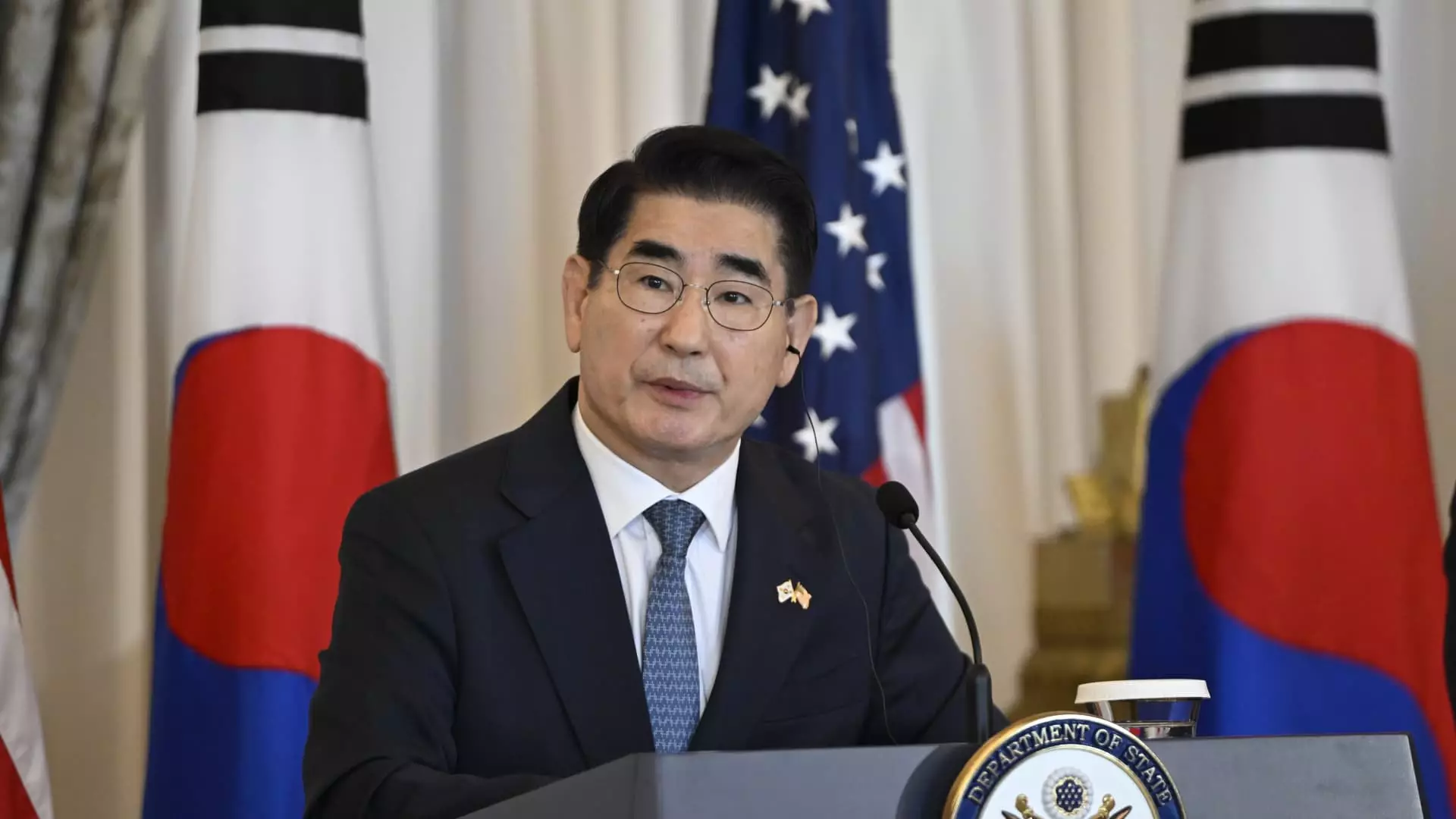In a significant political maneuver, South Korean President Yoon Suk Yeol has accepted the resignation of Defense Minister Kim Yong-hyun, amidst efforts to stabilize his administration during a period marked by escalating tensions and controversies. Yoon has nominated Choi Byung-hyuk, the former ambassador to Saudi Arabia, to take on the critical role of defense minister. This decision has drawn attention not only for its content but also for its timing; it comes in the wake of a militaristic advisory that recently shook the political landscape.
Choi, a former general of the South Korean army, is viewed by the Yoon administration as a principled choice. The Chief of Staff, Chung Jin-suk, characterized him as someone who exemplifies dedication and adherence to regulations—a vital sentiment during this chaotic political climate. However, Choi’s military background could lead to heightened scrutiny and expectations in his new role, particularly concerning national security issues.
The backdrop of this significant cabinet change is a heated controversy surrounding an attempted declaration of martial law by President Yoon. Reports indicate that former Defense Minister Kim urged Yoon to impose martial law as a means of controlling the political crisis, a decision that met with intense backlash. Following a parliamentary vote, Yoon promptly retracted his declaration, revealing the administration’s perception of instability and a potential setback in governance.
Yoon’s attempts to regain control have been met with hostility from the opposition. The Democratic Party has labeled the martial law initiative as treasonous, envisioning a response that could potentially lead to Yoon’s impeachment. The political ramifications of this incident have further fueled discord among party lines, with Yoon’s party vowing to resist impeachment efforts.
As the dust settles from this political tempest, the implications of Yoon’s actions loom large. The swift nomination of Choi illustrates an attempt to navigate through this crisis while reinforcing a sense of military authority amidst civilian governance. However, the opposition is rallying its forces, and tensions are high, suggesting that Yoon’s presidency may face challenges that extend beyond the current upheaval.
Furthermore, the incident underscores a critical issue in South Korean politics: the delicate balance between military influence and democratic governance. As negotiations within parliament begin regarding the impeachment motion, Yoon’s political acumen will be put to the test. This scenario reflects the complexities of a political landscape shaped by both internal dissent and external pressures, particularly in light of South Korea’s strategic position in a precarious geopolitical climate.
The departure of Kim Yong-hyun and the appointment of Choi Byung-hyuk signify not just a change in personnel, but also the current administration’s broader struggle to maintain authority and legitimacy against rising political opposition. The road ahead remains fraught with uncertainties, demanding deft leadership and the stability that citizens expect from their government.


Leave a Reply